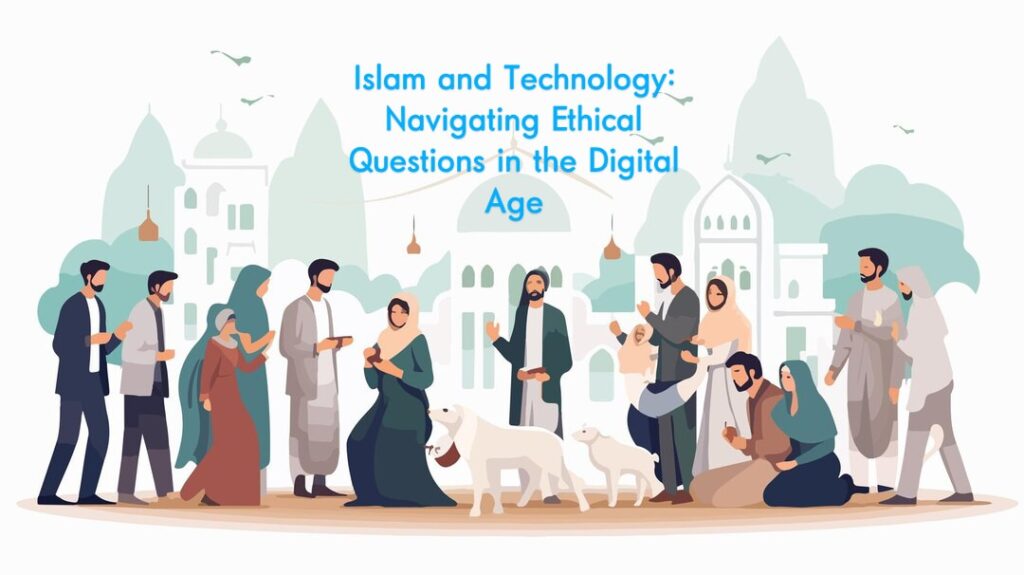Introduction
The intersection of Islam and technology has become an increasingly complex and nuanced topic in the modern world. As Muslims embrace digital advancements, they are confronted with a myriad of ethical questions that challenge traditional Islamic values and interpretations. This article explores how Muslims are navigating these ethical dilemmas and seeking to reconcile their faith with the demands of the digital age.
The Ethical Challenges
Privacy and Surveillance: The proliferation of surveillance technology raises concerns about privacy and personal freedoms. Muslims, who place a high value on modesty and personal privacy, may find themselves grappling with the tension between technological convenience and the preservation of their dignity.
Social Media and Content Consumption:
Social media platforms have become a ubiquitous part of daily life, but they also expose users to a vast array of content, some of which may be deemed inappropriate or harmful. Muslims are faced with the challenge of curating their online experiences in a way that aligns with Islamic values and avoids exposing themselves to objectionable material.
Artificial Intelligence and Automation: The rapid development of artificial intelligence (AI) and automation technologies is raising questions about the nature of work, human agency, and the potential for job displacement. Muslims are grappling with the ethical implications of these advancements and seeking to ensure that they are used in a way that benefits society and upholds human dignity.
Digital Financial Transactions:
The rise of digital currencies and online financial transactions has created new opportunities for economic activity. However, it has also raised concerns about fraud, money laundering, and the potential for unethical practices. Muslims are seeking to ensure that their financial dealings comply with Islamic principles of ethical finance.
Muslim Responses and Initiatives
Muslims are responding to these ethical challenges in a variety of ways. Some are advocating for the development of Islamic-compliant technologies that address the specific needs and values of Muslim communities. Others are working to raise awareness about the ethical implications of technology and to educate Muslims about how to navigate the digital landscape responsibly.
Additionally, many Muslim scholars and organizations are engaged in developing Islamic perspectives on emerging technologies. They are exploring how Islamic teachings can provide guidance on issues such as privacy, data protection, and the ethical use of AI.
Conclusion
The intersection of Islam and technology is a dynamic and evolving field. As Muslims continue to embrace digital advancements, they are also grappling with the ethical challenges that these advancements present. By engaging in thoughtful dialogue, seeking guidance from Islamic scholars, and developing innovative solutions, Muslims can navigate the digital age in a way that is consistent with their faith and contributes to a more just and equitable society.

